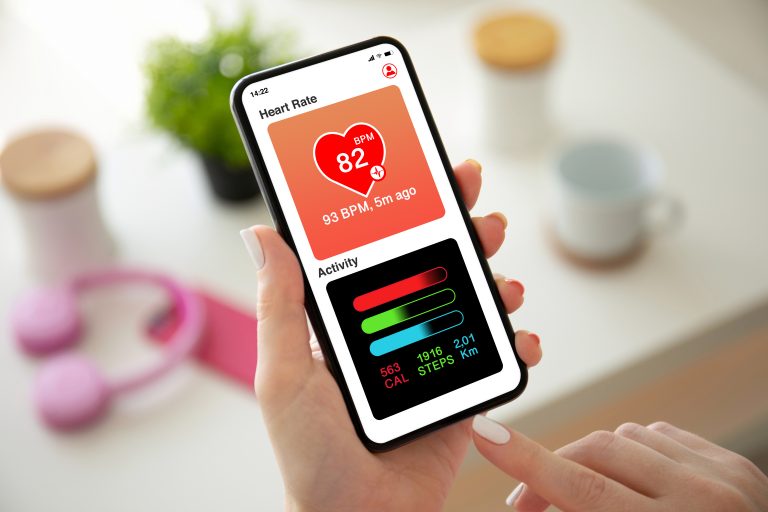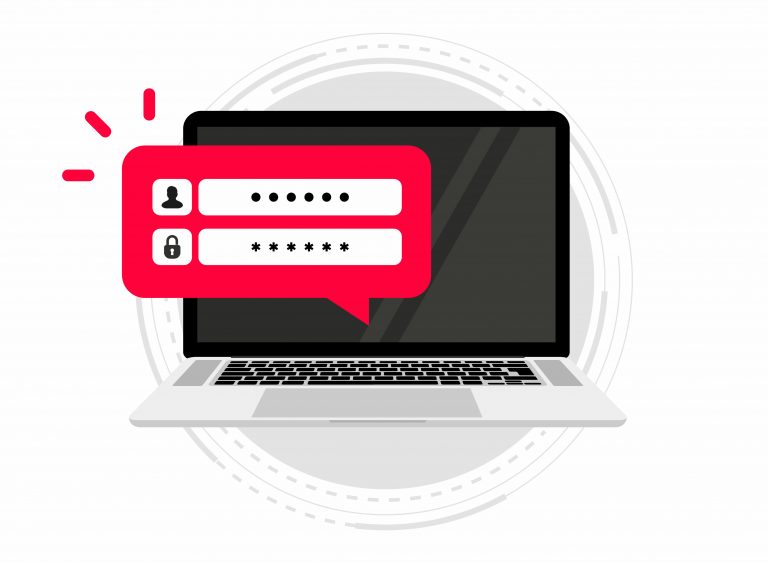Securing Your Health Data: Privacy Measures in Telemedicine
January 25, 2024Telemedicine has become an increasingly popular option for accessing healthcare services, allowing patients to consult with healthcare providers remotely. What…

Telemedicine has become an increasingly popular option for accessing healthcare services, allowing patients to consult with healthcare providers remotely.
Telemedicine, or telehealth, uses technology for remote healthcare services, connecting patients and providers through digital platforms like video conferencing and mobile health apps. This approach promotes patient engagement and quick access to medical expertise by overcoming physical distance. The COVID-19 pandemic significantly used telehealth visits increased its use, ensuring continuous care while reducing the risk of virus transmission. Telemedicine has become a vital tool for maintaining healthcare services and alleviating the strain on traditional healthcare facilities.
Privacy concerns in telemedicine encompass various challenges related to the privacy and security risks of patient data, compliance with HIPAA regulations, and the risk of cyber-attacks and unauthorized access.
Data breaches in telemedicine pose a significant risk to patient privacy and security. Robust encryption measures and data protection protocols are crucial to prevent unauthorized access to sensitive patient information transmitted over telemedicine platforms.
Healthcare providers should implement end-to-end encryption, along with access controls, authentication mechanisms, and regular security audits to fortify telemedicine systems against cyber threats. Establishing protective protocols for handling and storing patient data, including secure login procedures, encrypted databases, and employee training on cybersecurity best practices, is essential in mitigating the risk of data breaches.
Unauthorized access to patient data in telemedicine raises privacy concerns, emphasizing the need for strict access control measures and authentication protocols to protect sensitive information. Breaches can lead to privacy violations and pose risks to individuals and healthcare providers.
Implementing robust access controls is crucial to prevent unauthorized intrusion into telemedicine systems and safeguard patient data from security threats. Utilizing multi-factor authentication protocols can enhance security by verifying the identity of users accessing sensitive information on telemedicine platforms.
Inadequate security measures in telemedicine platforms can expose patient data to vulnerabilities, necessitating robust technological solutions, and security frameworks to mitigate risks. The transmission of sensitive patient information across digital channels makes these platforms susceptible to breaches and unauthorized access.
Implementing encryption protocols, multi-factor authentication, and intrusion detection systems can significantly enhance the security of telemedicine platforms. Adhering to industry standards and regulations through comprehensive security frameworks is essential to safeguard patient information from evolving cyber risks. Integration of risk mitigation strategies, including regular security assessments, employee training, and proactive network monitoring, is crucial to identify and address potential vulnerabilities.
Securing health data in telemedicine involves several critical steps, including choosing a secure platform, implementing strong encryption, and enabling multi-factor authentication to ensure comprehensive data protection.
Selecting a secure telemedicine platform is paramount to ensuring the privacy and security of patient data, requiring careful consideration of the platform’s technological infrastructure and security features.
When evaluating the technological infrastructure, it’s crucial to assess the platform’s ability to handle large volumes of data securely, as well as its compatibility with existing healthcare systems.
Encryption protocols, multi-factor authentication, and regular security updates are vital security features that should be in place. Furthermore, privacy considerations encompass adherence to healthcare regulations, compliance with HIPAA and GDPR, as well technology factors such as the assurance of data sovereignty and ownership. These aspects need to be thoroughly scrutinized to ensure a comprehensive safeguarding of patient information.
Employing strong and unique passwords for telemedicine sessions is essential to fortify the security of patient data, requiring adherence to robust password creation and management practices.
Creating a strong password involves using a combination of uppercase and lowercase letters, numbers, and special characters. It’s crucial to avoid using easily guessable information such as birthdays, names, or common words.
Regularly updating passwords and refraining from sharing them with unauthorized individuals are fundamental steps in protecting sensitive patient information. Implementing multi-factor authentication adds an extra layer of security, making it more challenging for unauthorized users to gain access. Organizations should prioritize educating staff on the importance of password security to ensure overall compliance and heightened data protection.
Enabling two-factor authentication for telemedicine sessions adds a layer of security to the patient portal, requiring verification beyond passwords, to prevent unauthorized access and enhance data protection.
Two-factor authentication plays a crucial role in telemedicine by bolstering security measures. Incorporating an additional verification step, such as a fingerprint scan or a one-time code sent to a user’s device, significantly reduces the risk of unauthorized access.
This added layer of security helps in safeguarding sensitive patient information and medical data, ensuring confidentiality and privacy. Two-factor authentication provides peace of mind to both healthcare providers and patients involved in telemedicine sessions accessing telehealth services. It instills trust and confidence by demonstrating a commitment to data protection and privacy.
With the rising concerns about cybersecurity threats, implementing two-factor authentication is a proactive step toward fortifying the security infrastructure of telemedicine platforms.
Regularly updating devices used for telemedicine sessions is crucial to address potential security vulnerabilities and ensure the integrity of patient data, requiring adherence to device maintenance and security update protocols.
Device updates are a critical aspect of maintaining the security and reliability of telemedicine systems.
Regularly patching and updating devices helps safeguard against potential cyber threats and protect sensitive devices protected patient information from unauthorized access.
Adhering to maintenance and security protocols mandated by regulatory bodies like HIPAA ensures that telemedicine devices adhere to established standards for data protection and privacy.
Updated devices not only enhance the security of patient data but also improve the overall efficiency and effectiveness of telemedicine sessions, ultimately benefiting both healthcare providers and their patients.
Remaining vigilant against phishing scams is essential in telemedicine to prevent cyber-attacks and unauthorized access, requiring awareness of common phishing tactics and proactive measures to safeguard patient data.
Phishing scams pose a significant threat to the confidentiality and security of patient information in telemedicine. Cybercriminals often employ deceptive tactics, such as email spoofing and fake websites, to trick healthcare professionals and patients into divulging sensitive data.
Educating healthcare staff about these tactics and implementing multifactor authentication and encryption can fortify defenses. Organizations should establish clear protocols for verifying the identity of individuals requesting access to patient records and regularly update their security software to mitigate vulnerabilities.
By fostering a culture of cyber-awareness and implementing robust cybersecurity measures, telemedicine providers can uphold patient trust and privacy.
Legal protections for health data in telemedicine encompass compliance with HIPAA regulations, alongside telemedicine-specific laws that govern the privacy and security of patient information, ensuring comprehensive legal safeguards for telehealth practices.
Adhering to HIPAA regulations is fundamental in telemedicine to ensure the confidentiality and privacy of patient data, necessitating compliance with stringent standards and practices set forth by HIPAA guidelines.
Compliance with HIPAA regulations is crucial in telemedicine due to the sensitive nature of patient health information.
HIPAA sets forth strict standards to protect patient privacy and confidentiality, establishing clear guidelines for electronic data transmission and storage.
Non-compliance with HIPAA regulations can result in severe penalties, compromising patient trust and damaging the reputation of healthcare providers.
Telemedicine-specific laws play a pivotal role in safeguarding the privacy and security of patient data, encompassing regulations tailored to the unique aspects of telehealth practices and data protection standards.
These laws are designed to address the complexities and nuances of healthcare delivery via digital platforms, ensuring that patient information is protected across virtual consultations video telehealth appointments, remote monitoring, and electronic health records.
They establish clear guidelines for the collection, storage, and transmission of sensitive health data, supporting the development of robust security protocols and encryption practices to mitigate the risk of unauthorized access or data breaches.
By setting forth comprehensive frameworks for telemedicine, healthcare providers, and technology vendors, these laws foster a culture of responsibility and accountability in handling patient data, thereby fortifying the trust and confidence of both healthcare professionals and individuals seeking remote medical services.
Advocating for privacy in telemedicine involves proactive measures such as questioning privacy policies, requesting health data, and reporting any violations, enabling patients to uphold their rights and ensure compliance with HIPAA regulations.
Inquiring about privacy policies in telemedicine sessions enables patients to understand data safeguards and make informed decisions, advocating for transparency and compliance with privacy standards.
By actively seeking transparency in privacy policies, patients can ensure that their sensitive medical information is protected as per established regulations and industry best practices.
It also provides an opportunity for individuals to engage in a dialogue with healthcare providers, fostering a culture of patient enablement and collaboration in safeguarding their privacy.
Requesting access to one’s health data in telemedicine reinforces patient advocacy for privacy and security, enabling individuals to monitor and understand the usage and protection of their personal healthcare information.
When patients can access their health data in telemedicine, it provides them with a sense of enablement and control over their medical information.
This access also facilitates the monitoring of their individual health status and ongoing treatments, leading to a more engaged and informed patient experience.
Furthermore, health data requests in telemedicine play a crucial role in public health emergencies promoting transparency and trust between patients and healthcare providers, fostering a collaborative approach to managing healthcare information.
Reporting privacy violations in telemedicine serves as a crucial advocacy measure, ensuring the enforcement of privacy standards, data protection, and compliance with patient rights.
By promptly reporting any breaches, patients and healthcare providers contribute to a safer and more secure telemedicine environment, safeguarding sensitive patient data and overall trust in remote healthcare delivery.
Advocating for stricter privacy enforcement incentivizes telemedicine platforms and providers to prioritize the protection of patient information, helping to prevent unauthorized access and misuse of telehealth privacy alone. This commitment to upholding privacy standards ultimately strengthens patient rights and supports the integrity of telemedicine services.
Prioritizing privacy in telemedicine is essential to uphold patient confidentiality, data security, and ethical healthcare practices, necessitating continuous efforts to integrate robust privacy measures within all telehealth technology and services.
Protecting patient confidentiality is fundamental in telemedicine as it ensures that sensitive health information remains private and secure. This not only builds trust between patients and healthcare providers but also aligns with ethical healthcare practices.
Implementing data security measures is crucial to safeguard patient data from unauthorized access, breaches, and cyber threats, thereby preserving the integrity of the healthcare system. By prioritizing privacy, telemedicine fosters a culture of respect for patient autonomy and maintains the highest standards of ethical healthcare practices.

Telemedicine has become an increasingly popular option for accessing healthcare services, allowing patients to consult with healthcare providers remotely. What…

In a world where cyber threats are becoming increasingly sophisticated, the importance of having strong passwords cannot be overstated. But…

Are you looking for a new job while still employed? Discreet job searching online is the key to keeping your…